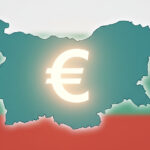Infotainment
Infotainment is an artificially created word made up of the English words “information” and “entertainment”. This term is used to describe media offerings that aim to present and convey information and knowledge in an entertaining way. Difficult issues, current political events, macroeconomic contexts or scientific achievements are often the subject of infotainment products.
Origin of the term
The media critic Neil Postman once belonged to the group of people who coined the term infotainment. Particularly in the 1980s, harsh criticism of developments on television came from these circles, saying that important topics in the areas of politics, education, culture, etc. were no longer being taken seriously by consumers. At that time, television prepared content in a relatively emotionalized and superficial manner, so that even reports from crisis areas around the world seemed like entertainment. Postman accused consumers of no longer being able to form their own judgments. The term infotainment therefore had a negative connotation at the time. The artificial word was used for the first time in September 1980 at the “Joint Conference of Aslib” in Sheffield, UK.
Infotainment in marketing
Marketing also makes use of infotainment and thus manages to convey even dry or boring information in such an entertaining way that it stays in the consumer’s mind and ear. Infotainment is used in advertising in both the B2C and B2B sectors. At the beginning of such a marketing concept there is the elaboration of a comprehensive concept, in which, among other things, the target group and its level of education are included. Only a precise analysis can reveal how best to prepare the message to be conveyed.
Live communication and infotainment
Live communication is used to address the target group as personally as possible. Infotainment is not only suitable at trade fairs and events, but also, for example, directly in the shopping center or at the POS. Promotional games are held at trade fairs, where visitors have to answer quiz questions or guess how many sweets are in a transparent column. Exciting shows using multimedia objects, such as laser shows, make people stop and take a closer look at the presenting company. Mimes, plays or stilt walkers also attract attention and can be classified as infotainment.










